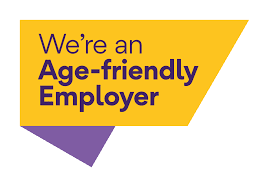Brexit and the supply chain – what to expect
With the ever-growing threat of a no-deal Brexit, the UK is reaching a peak of uncertainty. Most industry sectors are bracing themselves for impact, but one sector that’s arguably under the greatest threat is the supply chain industry. What are the issues and how can they be addressed?
The challenges
In the case of a no-deal or a Hard Brexit, the UK is likely to leave the customs union which could be catastrophic for certain supply chains.
Currently, 10 000 lorries a day pass through Dover. On leaving the customs union, French customs could decide to inspect these lorries, taking up to 45 minutes per truck. Goods leaving the UK could be delayed by days or even weeks[1]. Furthermore, our government has said that it would only be able to issue 1000 lorry permits per day – a far cry from the 10 000 that currently pass through.[2]
Both these factors would impact ‘Just in Time’ supply chains, to the extent that a number of businesses, including Boeing, BMW and Honda, are threatening to leave the UK[3] [4].
Fuel is also likely to become more expensive, increasing transport costs. This would ultimately need to be passed to the consumer, making most goods costlier.[5]
The UK already has a shortage of commercial drivers, and 10 per cent of today’s workforce are EU migrants. Leaving the EU is likely to create further vacancies and consequently, put pressure on supply chains.
Air freight also stands to suffer. Should the UK leave the EU without an agreed air deal, and with the country no longer part of the EU’s aviation partnership, it is thought that planes from 44 countries around the world would not be legally permitted to arrive or depart from the UK.[6]
- Ireland is likely to divert its supply chains out of the UK if tariffs are imposed and direct its products straight to Europe via maritime routes.
Bord Bia’s Brexit Barometer in June found that almost nine in 10 respondents in the food and drink sector said that their commercial model is ‘moderately or highly dependent’ on low supply chain costs.[7] Meanwhile two-thirds of those surveyed by the State Agency said their commercial models are sensitive to increases in lead times.[8]
The positives
The future may not be entirely hopeless, however! Opportunities arising from Brexit have been identified too.
For example, a rise in fuel prices could lead transportation companies to consider other, more efficient forms of logistics. This could drive research and development in greener, more sustainable transport, developing this sector of the economy[9].
In addition, the demand for commercial drivers would create more job opportunities with higher salaries – with greater appeal to British workers.
A number of commentators claim that leaving the EU will reduce bureaucracy and drive opportunities to diversify trade. It could drive stronger trade relationships with other countries such as China or the US. [10],[11]
The answer: Innovation
The solution to any challenge in any industry is innovation, and even a no-deal Brexit is not insurmountable.
The supply chain sector is already transforming, and the initiatives underway will drive down costs, increase efficiency, and ultimately help organisations prepare for the future.
Digital transformation will be a major factor in this. A key focus is the aggregation of data on a broad level to support – and autonomously make – business decisions. Data will identify what’s working well and where the issues are. The next step is automation.
Blockchain is a potential enabler that could automate the flow of goods across borders, and the Internet of Things will make it possible to track individual containers at every point on their journey and issues that arise along the way. This way logistics teams are freed up to deal with exceptions and challenges rather than the day to day paperwork.
Predictive analytics, too, can assess real-time data like weather forecasts and port congestion to predict the impact on shipments—even before the ship’s captain is aware.
The next stage of maturity in the digital supply chain is supervised machine learning, where intelligent systems will move beyond predicting issues to prescribing the best course of action. For a late shipment, for instance, the system could provide several resolutions (such as to purchase from another supplier) and recommend the best choice.
These various steps will create a faster, cheaper and more efficient supply chain.
Beating the Brexit Barrier
The implications of Brexit are still unclear, and that’s what’s creating the anxiety for industry across the UK and Europe. Until the challenges move from speculation to certainty, the only course of action is to get your business in the best shape possible.
Many of our clients are seeking proven supply chain leaders to do just that. We are providing many experienced interims to help businesses innovate.
By driving digitisation now they are becoming more agile, putting them in the strongest position to deal with whatever the future holds.
[1] https://www.logisticsmanager.c…
[2] https://www.aircargonews.net/n…
[3] https://www.joc.com/regulation-policy/trade-policy/international-trade-agreements/logistics-providers%E2%80%99-frustration-growing-over-lack-post-brexit-plan_20180625.html
[4] https://infacts.org/supply-cha…
[5] http://www.supplychainquarterly.com/news/20170818-the-impact-of-brexit-three-key-logistics-concerns/
[6] https://www.aircargonews.net/n…
[7] https://www.independent.ie/business/brexit/food-sector-fears-brexit-bottlenecks-trade-threat-37191119.html
[8] https://www.independent.ie/bus…
[9] http://www.supplychainquarterly.com/news/20170818-the-impact-of-brexit-three-key-logistics-concerns/

Contact us
Call us on 07930 356305 or email HQ@russam.co.uk








